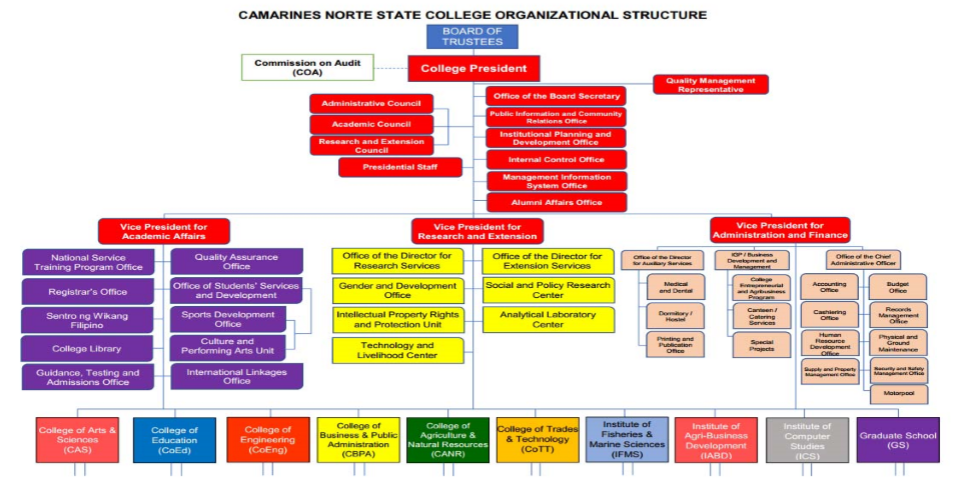The Camarines Norte State College shall primarily provide higher technological and professional instruction and training in the fields of economics, agriculture, health, engineering, education, management, finance, accounting, forest research and conservation, business and public administration as well as short term technical and vocational courses. It shall also provide and promote research and extension services, advanced studies and progressive leadership in all areas of discipline and responsibilities.

